When it comes to car accidents, the road to recovery can be long and challenging. However, with the proper evidence, you can build a strong case for compensation and increase your chances of obtaining justice.
From medical records to eyewitness testimonies, each piece of evidence brought to the table can establish a clear link between the accident and your injuries. Let us see how these various types of evidence can affect the outcome of your case.
Car accidents can be traumatic, life-altering events. Often, victims are left with serious injuries that require medical attention and financial compensation. If you have been hurt in an auto collision, the harm you may have suffered can range from minor cuts and bruises to severe fractures or even long-term disabilities.
To pursue a successful personal injury claim after a car accident, it is not enough to simply show that you were injured. You must also meet the "burden of proof." What does that mean?
To meet the burden of proof, you must clearly prove the other driver was responsible for causing the accident or otherwise contributed to it. You must also prove that the collision directly caused your injuries.
Meeting the burden of proof can be challenging, but it is entirely possible with convincing evidence supporting your position. Which begs the question: What types of evidence can you use to build a strong case?
Medical evidence is key in establishing this connection between the accident and your injuries.
Medical evidence includes various types of documentation, such as:
Such evidence tells the story behind your injuries by detailing their severity and impact on your daily life.
The following types of medical evidence can be leveraged when building a solid case.
Medical records can serve as powerful tools during settlement negotiations or court proceedings. These records can corroborate your version by creating a timeline of events. They also indicate the severity and nature of your injuries.
Such records also provide a detailed account of the victim's health and recovery, including:
Medical records also give insight into future prognosis and potential long-term effects on your health. This information is vital when calculating fair compensation for future medical expenses and ongoing pain and suffering.
You must gather relevant records from your treatment providers, including:
Diagnostic tests and imaging play a crucial role in car accident claims by providing concrete proof of the injuries sustained.
These tests can help establish the extent and severity of the injuries:
In addition to these diagnostic tests, other types of imaging, such as ultrasounds and electromyography (EMG) studies, may also be employed, depending on the nature of your injuries.
The opinion of medical professionals can carry significant weight in support of your personal injury case. Their professional opinions can help bridge the gap between the harm you suffered and the cause of those injuries.
Medical experts bring years of training and experience to the table when providing testimony. Their unbiased analysis may persuade judges or juries that your injuries are indeed a direct result of the car accident.
Building a comprehensive case requires more than just medical records and expert opinions. It requires thorough investigation and strategic presentation of all available evidence.
By gathering the following evidence, you can enhance your claim's chances of success.
Before leaving, you should carefully document the scene of the accident. This immediate documentation plays a vital role in proving the link between the car crash and your injuries.
While at the scene of the accident, you should take photos and videos of any:
The immediate aftermath of a car accident is often chaotic and stressful. Still, if possible, you could record footage of conversations with the other driver, witnesses, or police officers at the scene.
To ensure that your photographic evidence is effective in supporting your claim:
When proving injuries in car accident claims, eyewitness testimonies can be invaluable. These accounts provide a firsthand perspective of what happened during the incident. Witnesses can also establish details that may otherwise be disputed.
Eyewitnesses are individuals who were present at the scene or witnessed the accident shortly after it occurred.
Witness statements can shed light on factors such as:
These testimonies hold significant weight in court because they offer unbiased perspectives from individuals who have no personal stake in the outcome of your car accident claim.
Memories fade over time, details become hazy, and witnesses might be more difficult to track down after some time has passed. Thus, while it is always best to collect eyewitness statements at the scene of the accident, circumstances may prevent you from doing so.
If you did not gather eyewitness statements at the accident scene, here are steps your lawyer can take in your behalf:
The at-fault driver's social media posts can offer valuable insights into his or her state of mind before and after the accident.
The at-fault driver may post about:
The right personal injury attorney will understand how to legally obtain digital evidence if it is necessary to help your case along.
Accident reconstruction specialists use various techniques and tools to analyze physical evidence, vehicle damage, and other factors to recreate what happened during the accident.
They aim to determine factors such as:
Through careful investigation, accident reconstruction specialists play an integral role in unraveling the sequence of events surrounding a car accident.
Economic damages impact how much financial restitution you are entitled to receive.
To accurately quantify your economic damages, be sure to document:
Often, the impact of a car accident goes far beyond physical injuries and financial losses. Non-economic damages encompass any suffering, pain, and trauma endured by the injured.
Non-economic damages can include:
These damages are not easily quantifiable as they don't come with a price tag like medical bills or lost wages. However, they hold significant value in personal injury cases.
Medical records detailing psychological treatment or therapy sessions can support your claim for non-economic damages. Additionally, testimony from mental health professionals may further strengthen your case.
Of course, many elements can impact the final amount awarded for a personal injury claim. These include insurance policy limits or your state's liability laws. To seek the maximum financial recovery possible for your claim, consult an experienced car accident lawyer.
When seeking justice after a car accident, having the right legal team on your side can make all the difference. That’s where Kiley Law Group comes in.
At Kiley Law Group, justice is not just a word – it is our mission. Our dedicated team fights passionately for every client. From medical records to eyewitness testimonies, our experienced car accident lawyers will leave no stone unturned when gathering the necessary evidence for your case.
We know how to leverage evidence to strengthen your case even if you have pre-existing conditions or delayed onset of injuries. We can help you negotiate a fair settlement outside of court with the insurance companies. If litigation becomes necessary, our team can build and present a solid case on your behalf.
We understand your pain, and we care about your recovery. If you were injured in a car accident, you don't have to face this legal battle alone. Instead, let the skilled attorneys of Kiley Law Group help you seek justice. Why not schedule a free no-obligation consultation with a Kiley Law Group personal injury attorney to discuss your case? You can do so by dialing (978) 965-3228 or completing our online contact form.

